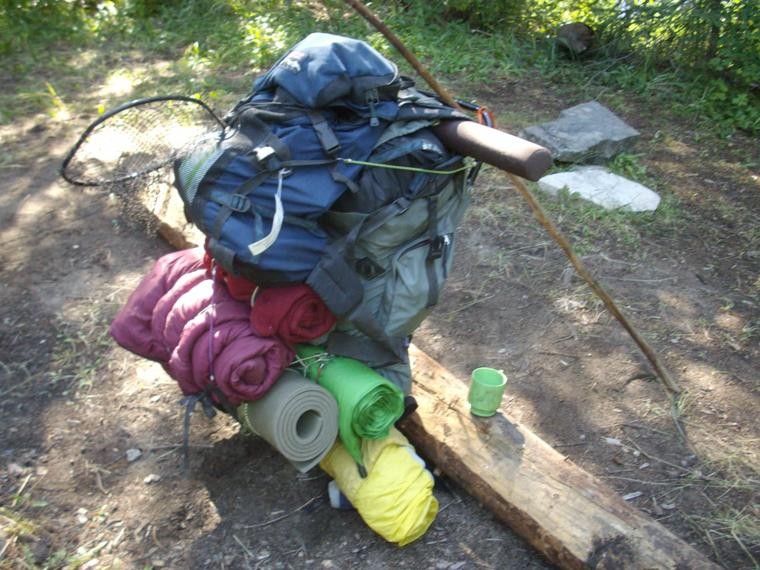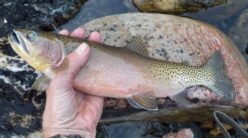OK, it’s pretty simple. You only have X amount of dollars you can blow. The more you scrimp, the more outdoor adventures you can partake in. Right? So, this week let’s go a little deeper than we did last week. I could sum up this whole article in two words: Go cheap. But don’t be over-the-top cheap or it’s no fun. As Katy would say, “You don’t want to be tight to a fright.”
So how do you do that? Tent camp. One time I took the girls to the coast. We’d camp one or two nights and then get a motel so we could all clean up. That was a great trip. When camping on a beach you don’t really even need sleeping pads, the sand is soft. But, what if the girls balk? Maybe you have to break down and buy a camper. Everyone’s situation is a little different.
According to where you’re going, but as a general rule, it’s going to be a lot cheaper to buy your groceries at home. And usually, you’ll be in spots where there’s nothing available anyway. For sure you always want to take enough clothes and gear. They will always cost you more on the road.
COOKING AHEAD
Sometimes it’s smart to cook at least two meals ahead of time. For instance, when elk hunting. On a hard week of elk hunting at least a couple of nights you’re not going to get back to camp until way after dark. You’ll be so ragged out that you don’t even have enough energy to cook.
For the above scenario I’ll make a pot of stew and freeze it and a pot of chili and freeze it. Frozen it will serve the dual purpose of acting as ice in your cooler. Drag into camp, throw it in a pan over the fire, heat and eat and go to bed. My buddy Shawn pre-makes burritos, which heat up nicely. Or you can take cans of chili.
One time years ago, I took a buddy to one of my secret fishing holes. I cooked dinner and he whipped out paper plates and plastic silverware. I always used a camp set. He said I came to fish, not waste time washing dishes three times per day. There’s some truth to his reasoning.
CAMP BOXES
Some day I’ll write a whole article on this subject: Camp boxes. Every since high school I’ve had a camp box. I always use a wood box but some people use a big plastic container. You have to have a camp box or invariably you’ll forget to pack something every trip. A can opener, a skillet or something.
To stock up a camp box can be inexpensive. Go to Goodwill and buy six plastic plates, stackable glasses and coffee cups. Same with silverware, spatulas, pans, skillets and a coffee pot. And don’t forget to stock your box up with spices. Motel coffee packs work great for making coffee and are compact.
Some things you don’t want to buy used. For instance, lanterns and stoves. They’re key items and if they don’t work, they can spoil a trip. I like the old-school lanterns but I’ve got to admit, battery-operated ones are sweet for using in your tent. Who hasn’t knocked over a lantern in a tent and the hot lantern burned a hole in the tent?
ONE WORD OF WARNING!
Be careful if you run a lantern, stove or tent heater in your tent. They can burn up all of the oxygen and kill you.
Always take two spares — tires, that is. Once while moose hunting over by Yellowstone I woke up three mornings in a row with flats. First off, it’s a pain running to town to get it fixed and secondly, it’s probably going to be higher than at home. Go to the junkyard to get one or two extras.
Splurge a night or two and eat something nice. And really, it doesn’t have to cost much. In fact, for $2 to $3 you can make some awesome brownies or dump cake in a Dutch Oven. And for one night it’s sweet to cook steaks.
One big money waster for most families is when they make a pit stop at the 7-Eleven to fill up on gas on the way out of town. Suddenly everyone remembers that they have forgotten their sunglasses, needs a soft drink and a piece of candy. Buy all of those items at a real store before you leave.
Well, there’s a few more ways to stretch out the budget so you camp more often. This will allow you to go more often but if well planned it will be just as enjoyable as blowing a fortune like you normally do. Plus, you can now go three times as much.
Tom Claycomb lives in Idaho and has outdoors columns in newspapers in Alaska, Idaho, Utah, Nevada, Colorado and Louisiana. He also writes for various outdoors magazines and teaches outdoors seminars at stores like Cabela’s, Sportsman’s Warehouse and Bass Pro Shop. He can be reached via email at smileya7@aol.com.



